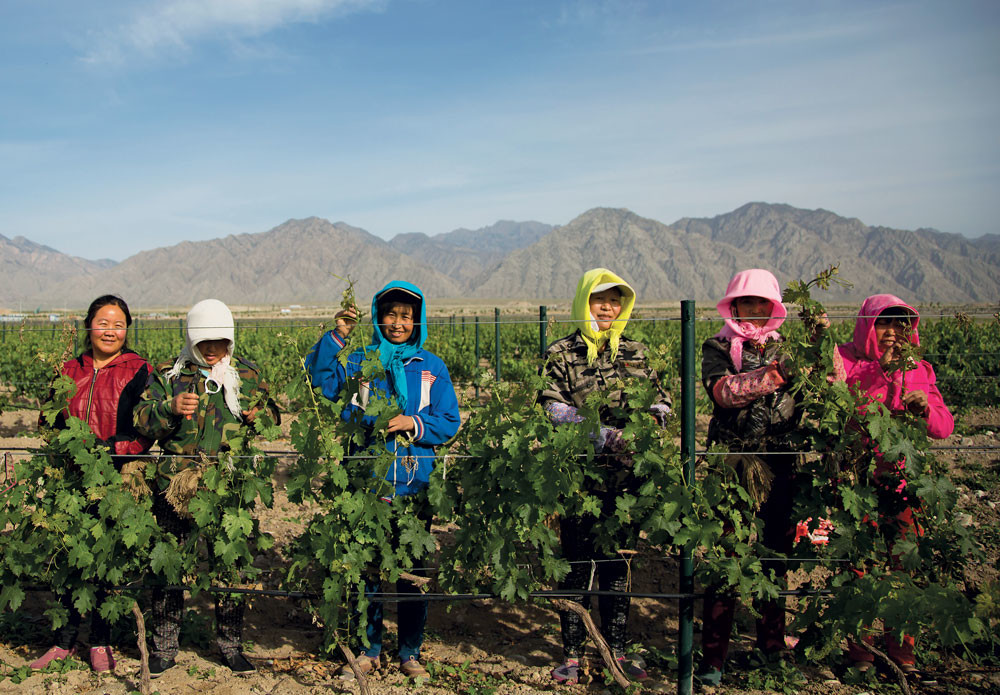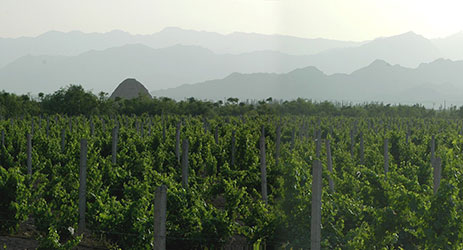High quality white wine grapes are in short supply in Ningxia and the coming 2014 harvest is not expected to improve the situation significantly.

As Ningxia growers prepare for the 2014 white grape harvest, Pernod Ricard’s Domaine Helan Mountain has already decided that it won’t make a Special Reserve Chardonnay from this year’s crop. It plans to produce an entry-level blend of Chardonnay and Welschriesling instead, said the estate’s head of viticulture, Brett Richardson. The 2011 vintage of the Special Reserve Chardonnay won a bronze medal in the 2014 Decanter World Wine Awards.
While some might attribute the decision to market trends, with Chinese government austerity measures curbing consumption of high-end wines, Richardson said the estate faces supply problems for white grapes. Many wineries in the Ningxia Hui Autonomous Region in western China buy at least a proportion of their grapes from outside growers.
Richardson said he expects Domaine Helan Mountain’s white wine production to fall overall this year. ‘This is mainly due to the less-than-ideal quality of the grapes [from independent growers],’ he told DecanterChina.com. ‘The yield has increased, but the quality has dropped.’
White grapes only account for around 10% of Ningxia’s vineyard area, estimated Professor Li Demei, a leading proponent of China’s emerging wine industry and DecanterChina.com columnist.
Some have forecast an above-average white wine harvest in 2014. ‘Generally speaking, it is not [looking like] a bad vintage,’ said to Emma Gao, winemaker at Silver Heights, who added that it has been a relatively cool growing season. ‘As long as it does not rain during the harvest, the grape quality is guaranteed,’ said Ding Yuzhuo, winemaker at the Guangxia (Yinchuan) Industry Co.
Silver Heights plans to produce its first white wine with grapes from the Helan Mountain East region this year. But, like Pernod Ricard, it is targeting the entry-level market. ‘We just planted our Chardonnay this year, and will have to wait three to five years to make wine with those grapes,’ said Gao.
‘For now, the white grape source we can use is very limited. We have bought grapes from 12-year-old vines planted on sandy loam soil. The lack of acidity means that it is not suitable for a wine with ageing potential, but we are confident we can make a clean table wine.’
Some winemakers argue that they have time on their side when it comes to improving white grape supplies. ‘The majority of wines sold in the Chinese wine market are red wines, and the demand of white wine is rather small,’ said Richardson. ‘Even if we have to reduce the white wine production, the volume is still enough to fulfil the market requirement.’
(Edited by DecanterChina.com staff; translated by Nina Fan Feng)
All rights reserved by Future plc. No part of this publication may be reproduced, distributed or transmitted in any form or by any means without the prior written permission of Decanter.
Only Official Media Partners (see About us) of DecanterChina.com may republish part of the content from the site without prior permission under strict Terms & Conditions. Contact china@decanter.com to learn about how to become an Official Media Partner of DecanterChina.com.






Comments
Submit